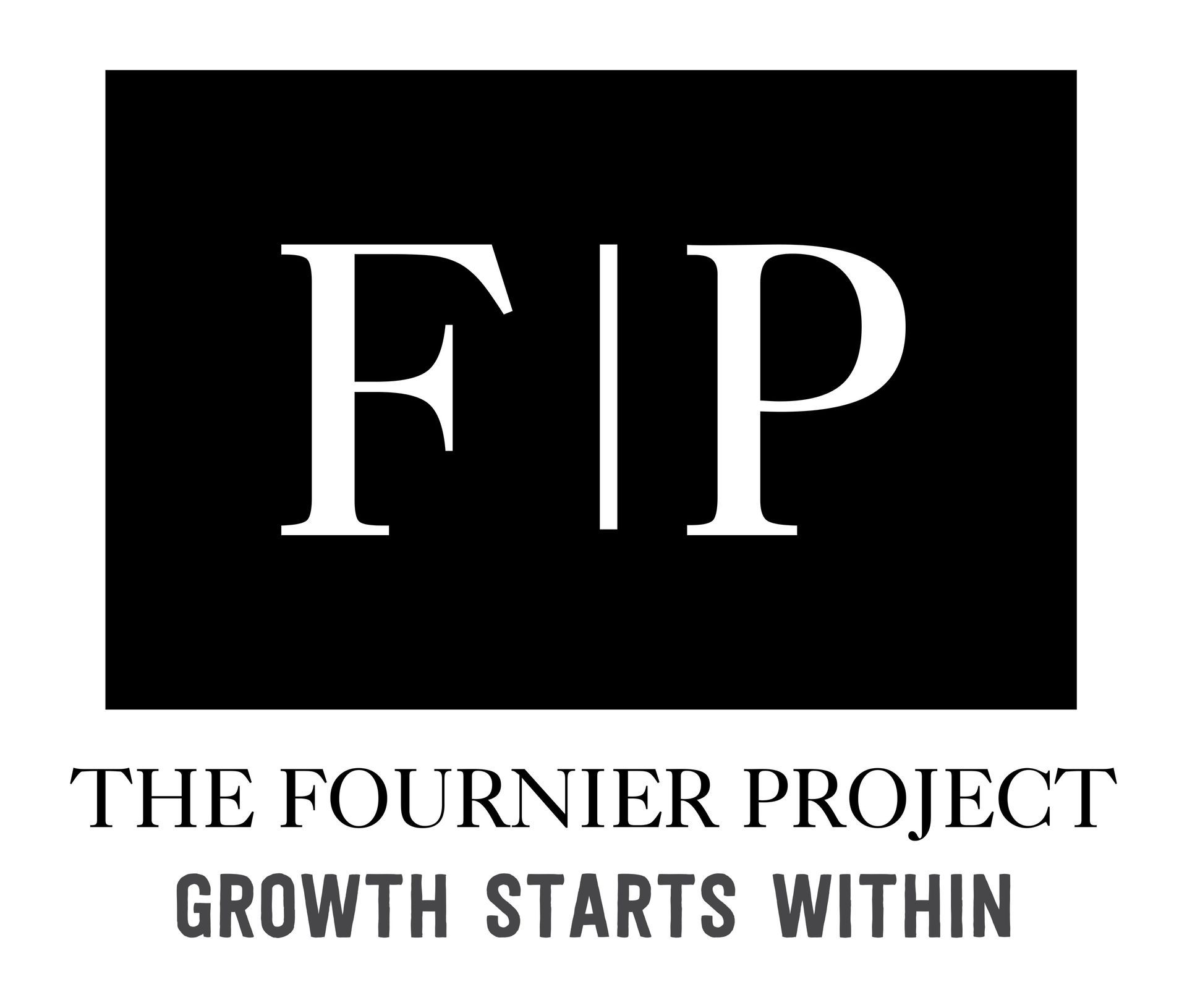About TFP
The Fournier Project's mission: I believe that growth starts from within, and that people can unlock limitless potential by changing their perspective. TFP's unique blend of psychological insights, developmental strategies, and visual storytelling through professional photography sets a new standard for developing the self and organizations. FTP exists to be more than consultants, coaching, or headshot photography; FTP partners in our client's journey toward becoming their best selves and achieving their most ambitious goals.
The I/O Psychology & Resilience Wellness Training Approach

Research & Analytics
In Industrial/Organizational (I/O) Psychology, a field many might not be familiar with, the starting point for any project is always data. Imagine a scientist carefully collecting information before starting an experiment. That's precisely what I/O Psychologists do, but they work with surveys, interviews, and performance metrics instead of test tubes and chemicals. Their goal? To help businesses and organizations create better workplaces where innovation thrives, and employees grow personally and professionally.
Think of it like a gardener who tests the soil and checks the weather before planting. These psychologists gather all the necessary information to understand what's happening within a company. This approach ensures that any changes or improvements they suggest are based on solid evidence, not just guesses. It's like using a map to find treasure; the data guides them to make the right decisions, ensuring they're helping companies in the most effective way possible.
It might seem like magic for those unfamiliar with this field—using numbers and facts to transform workplaces. But at its heart, it's about understanding people:
- What motivates them.
- What makes them happy at work.
- How to help them work together more effectively.
By starting with data, I/O Psychologists ensure that their efforts are grounded in reality, making the workplace better for everyone involved.

Planning Strategy
When an Industrial/Organizational (I/O) Psychologist starts planning their analysis, it begins with sketching the blueprint for research. Before any research starts, there needs to be a clear plan outlining the objectives. I/O Psychologists outline their goals, decide which data to collect, and determine the methods they'll use to analyze it. This planning stage is crucial because it sets the foundation for their entire project.

Concept Creation
When an Industrial/Organizational (I/O) Psychologist collects data, it's like a detective gathering clues at a crime scene. Each piece of information is a vital clue that can help solve the mystery of how to improve the workplace. They use a variety of methods to gather these clues:
1. Surveys and Questionnaires: These are like interviews with a large group of people at once, asking about their experiences, satisfaction, and engagement at work. It's a way to get a broad view of employee sentiments across the organization.
2. Interviews: These one-on-one conversations provide deep insights into individual experiences and perspectives. It's like having a detailed map of a specific area, offering a closer look at what's happening on the ground.
3. Observations: Watching how people interact in the workplace can reveal a lot about the company culture and workflow. It's akin to observing wildlife in its natural habitat to understand natural behaviors and interactions.
4. Performance Data: Reviewing employee performance records, including productivity metrics and evaluations, helps identify strengths and areas for improvement. It's like checking the scorecard in a game to see who's performing well and who might need extra coaching.
The reason for collecting this data is to build a comprehensive picture of the workplace. Just as a detective pieces together clues to form a complete story, an I/O Psychologist uses this data to understand the organization's current state, identify areas for improvement, and guide interventions that can lead to a more positive and productive work environment.

Test in the field
When an Industrial/Organizational (I/O) Psychologist tests their research data, it's like a chef tasting a dish while cooking. Just as a chef adds ingredients, stirs, and tastes to ensure the dish is coming along, an I/O Psychologist collects data, analyzes it, and then checks to ensure their findings make sense and match real-world situations. We use special tools and methods, similar to how chefs use kitchen gadgets, to examine the information gathered from workplaces. This process often involves looking at survey responses, performance records, or interview transcripts to identify patterns and trends.
The testing phase is crucial because it helps the psychologist confirm their analysis is accurate and reliable. If the data doesn't hold up under scrutiny, it's back to the drawing board, like a chef tweaking a recipe until it's right.
This step ensures that any recommendations an I/O Psychologist makes, such as changes to improve employee satisfaction or increase productivity, are based on solid evidence. It's all about making
sure the final dish is delicious and ready to be served, or in the psychologist's case, ensuring their findings can help improve the workplace.

Success Garanteed
When an I/O Psychologist reviews their findings with clients, they follow a clear and structured approach to ensure understanding and actionable insights:
- Simplify Complex Data: They break down complex data into understandable terms.
- Highlight Key Insights: Just as a tour guide points out the most important and interesting sights, the psychologist emphasizes the most critical insights from the data that can impact the organization's goals and strategies.
- Provide Actionable Recommendations: Similar to a coach giving a game plan, they offer clear, actionable steps the organization can take to address the findings, ensuring that the advice is practical and tailored to the company's specific needs.
- Encourage Feedback: They open the floor for questions and discussions, inviting clients to share their thoughts and concerns, fostering a collaborative environment where insights can be refined and understood deeply.
- Follow-Up Plan: Finally, they outline a follow-up plan to assess the impact of implemented changes, ensuring the organization remains on the right path.

Cognitive Strengthening
Merging the robustness of resilience training with the insights of I/O Psychology equips you with an unparalleled toolkit for business success. Imagine possessing a masterful business strategy enhanced by an ecosystem designed to spur innovation, facilitate continuous learning, and nurture development. This approach empowers you to tackle business hurdles with nimbleness and assurance, transforming possible obstacles into springboards for advancement. The organizational climate transforms into a powerhouse for achievement, where the ethos champions learning from missteps, not just as permissible but as essential, and where embracing calculated risks is woven into the fabric of striving for excellence. This fusion prepares individuals to thrive amidst challenges and cultivates an organizational culture that propels everyone toward peak performance and innovation.

Top Five Resilience Tactics
- Embracing Failure as Feedback: Successful entrepreneurs view failures as valuable feedback, learning from mistakes to refine their strategies and approaches.
- Setting Clear, Adaptive Goals: They establish clear, achievable goals while remaining flexible enough to adapt to changing circumstances and opportunities.
- Building a Strong Support Network: Creating a network of mentors, peers, and professionals provides them with advice, support, and a sounding board for ideas.
- Maintaining Physical and Mental Health: Prioritizing their health ensures they have the energy, focus, and stamina to tackle challenges and stress.
- Practicing Mindfulness and Stress Reduction Techniques: Incorporating mindfulness, meditation, or other stress reduction practices helps them stay centered, reduce anxiety, and maintain perspective when facing adversity.
"Too many people accumulate little more than a list of regrets because they doubted rather than believed."
- Rich DeVos
As an Industrial/Organizational (I/O) Psychologist, I enhance workplace environments by aligning them with personal meaning, aiming to prevent the accumulation of regrets among employees who might doubt their potential. I employ data-driven approaches to pinpoint and remove barriers to engagement, ensuring that each person's contributions are acknowledged and appreciated. By customizing roles to align with individual strengths and cultivating leadership that inspires confidence, I foster a culture where belief in one's abilities can thrive. Through this transformative work, I shift the narrative from doubt to belief, enabling employees to find profound personal meaning in their work and sidestep the pitfalls of regret.
TFP Blog



Recent Posts
TFP Blog








